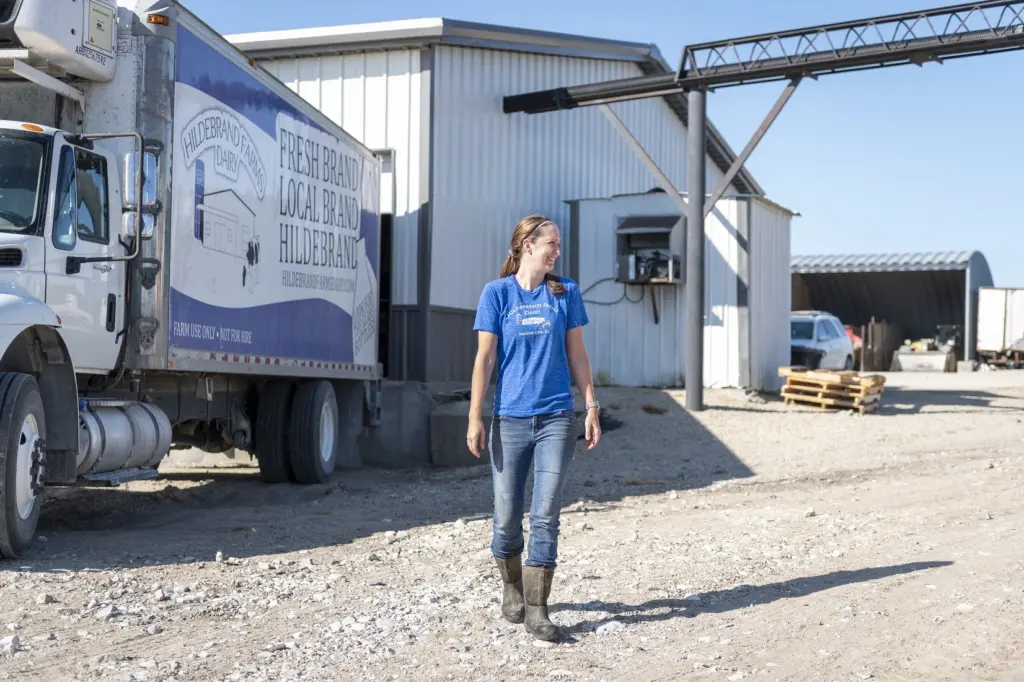Protruding peculiarly from the top of the milking barn at Hildebrand Farms Dairy is a long, overhead stainless steel line. That’s because Hildebrand now bridges its fresh milk to a connected processing facility, which opened in 2008 on a leap of faith.
It’s here, 100 feet from the source, a mixture of dairy products — not just white milk, but chocolate, strawberry, root beer-flavored, and more, as well as delicious creams, butters, and ice cream mixes — are pasteurized, homogenized, carefully poured into Hildebrand’s signature glass containers, and labeled under the 90-year-old family farm’s name.
“I love the pureness and simplicity of what we make,” said Melissa Reed, Hildebrand’s plant and marketing manager and the go-to gal for stores. “We’re taking what Mother Nature gives us, harvesting it the best way possible, and putting it in a package.”
Melissa, the oldest of Alan and Mary Hildebrand’s three children, is one of seven different third- and fourth-generation family members to work with the business full time. While she loves being around the excitement of the processing plant and having her finger on the pulse of consumer interest, she also relishes the peacefulness and tranquility the cows over next door. The dairy barn, in fact, was built by her grandparents in the 1970s to incent her dad and uncle to return to the Flint Hills farm with their wives — one reminder of the investments and sacrifices made throughout the years to keep the family dream alive.
Today, this dream is appreciated by people from all over the country, as the farm has become a popular daytrip for individuals stationed at nearby Fort Riley U.S. Army base. While many of the historic traditions have been preserved (the glass bottles harken back to the first generation’s idea of selling milk door-to-door), visitors also can see new dairy technology at work, including three-phase cooling fans that require less electricity and motion-activated sprinklers that only mist cows when they’re actually present.
Hildebrand Farms also collects its unsold, near expiration milk back from stores to feed its baby calves — a “win-win” solution for sustainability and for its animals.
“The cows naturally come first because they take care of us. We wouldn’t be able to have this business without them, so we have to return the favor,” said Melissa.
